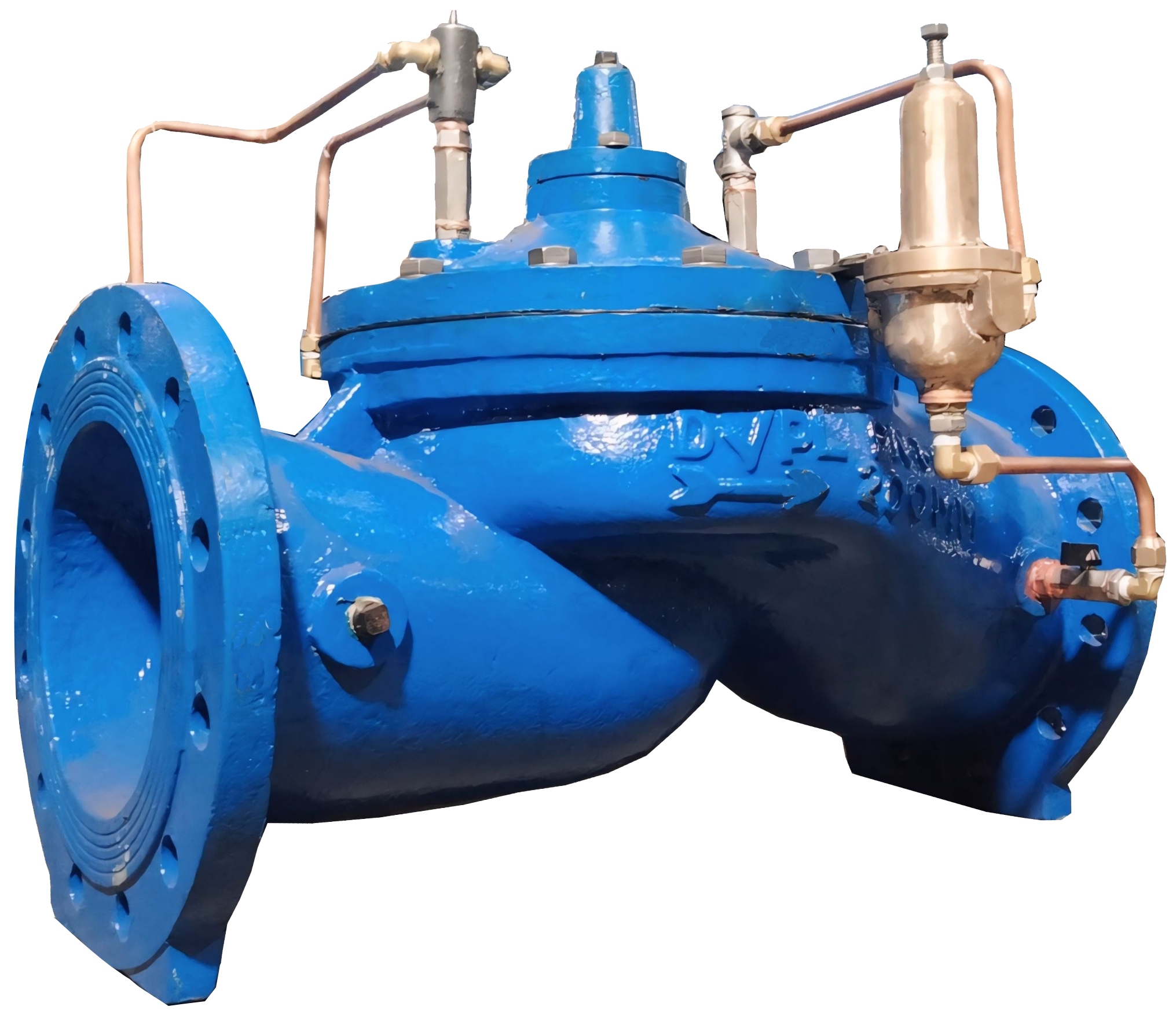Flow Control Valve
 |
A flow control valve is a device used to control the flow of fluid in a system by controlling its speed and pressure. In short, they are essential components for flow control in many modern industrial systems. Flow control valves are designed as "Y" type to show maximum resistance to cavitation under high flow rate and minimum head loss. Automatic flow control valves are double-chamber diaphragm actuated and disc closed type.
Advantages:
Precise Flow Management:
One of the main advantages of this valve is its ability to precisely control the flow of fluid. This feature is especially important where it is necessary to tightly control the flow of fluid. Its robust mechanism to maintain a constant flow rate and ensure that the system performance does not fluctuate.
Low Operating Costs:
Flow control valves help improve system efficiency and reduce operating costs. Automatic flow control valves can be programmed to automatically control the flow rate and reduce the risk of human error.
Pressure Control:
Flow control valves control the pressure within a system by controlling the flow rate of fluid. By controlling pressure, flow control valves can prevent pressure buildup that can damage the system or even cause mechanical failure.
Various Applications:
Flow control valves can be used in a variety of applications, including hydraulic and pneumatic systems, water treatment plants, chemical processing plants, and oil and gas pipelines.
Efficient Energy Use:
By controlling the flow rate of fluid, flow control valves help improve energy efficiency by reducing energy waste. This feature is particularly important in processes where high precision and accuracy are required to reduce energy consumption.
Disadvantages:
Limited flow range:
Flow control valves are not suitable where large flow are required. These valves are designed to control flow rates within a narrow range.
Contamination and corrosion:
Flow control valves are not capable to control contamination and corrosion, which can reduce their effectiveness. Deposits can cause blockages and degrade valve mechanisms, reducing the life of the valve.
Maintenance:
Maintenance of flow control valves can be complex and expensive. For valves maintenance specialist require to maintain or replace the specific components of the valve, which can be time-consuming and require skilled personnel.
Cost Effective:
Flow control valves can be expensive, especially if they are required for specialized applications.
Installation and Configuration:
Flow control valves require careful installation and configuration to operate effectively. To ensure optimum performance, these valves must be properly installed.









